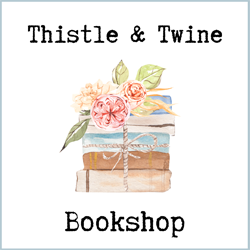Siddhartha
written by Hermann Hesse
152 pages // published in 1922 // philosophic classics
BOOK DESCRIPTION
Herman Hesse's classic novel has delighted, inspired, and influenced generations of readers, writers, and thinkers. In this story of a wealthy Indian Brahmin who casts off a life of privilege to seek spiritual fulfillment. Hesse synthesizes disparate philosophies--Eastern religions, Jungian archetypes, Western individualism--into a unique vision of life as expressed through one man's search for true meaning.
Herman Hesse's classic novel has delighted, inspired, and influenced generations of readers, writers, and thinkers. In this story of a wealthy Indian Brahmin who casts off a life of privilege to seek spiritual fulfillment. Hesse synthesizes disparate philosophies--Eastern religions, Jungian archetypes, Western individualism--into a unique vision of life as expressed through one man's search for true meaning.


“What could I say to you that would be of value, except that perhaps you seek too much, that as a result of your seeking you cannot find.”
It's considered a classic, so I read it... but to start my review off, I'll say that it's not exactly a favorite or anything like that.
Siddhartha is a tale about finding spiritual enlightenment, and it's a journey about finding your true inner self. The book might make you think about yourself, or make your question what you're seeking in your life. It is, like most classics, a book to make your think good and hard about your life choices, and perhaps helps you to see other people's lives through a new perspective.
The story feel like a parable, as if it has many layers of meanings. It is told to the reader simply. It's not wordy, but is filled with words of wisdom. I'm sure that everyone can find at least one good line in there to really sink your teeth into and apply to your life. Me? I probably ended up finding at least a dozen quotes that speak to my heart in some way. One thing this book does not lack is knowledge of the human race.
Overall, I found Siddhartha to be fairly interesting (hey, I finished it to the last page), but still not my cup of tea. Sometimes though, we need a good read about an important quest. Specifically a quest to sometimes find... ourselves. Because if one doesn't even know one's own self, then who are we, really?
Note to discerning readers: There is some mature content, more so than what I personally want in a book -- but at least it isn't too frequent or an overload.
“Searching means having a goal, but finding means being free, being open, having no goal ... because in striving for your goal there are many things you do not see, which are directly in front of your eyes.”


This is book #10 for me in the Back to the Classics 2018 challenge.
[CATEGORY: Classic With a Single-Word Title]

P.S. Like and vote for this review on Goodreads and Amazon.













I'm going to read this one myself very soon, especially since I saw it featured on the Great American Read. Great review by the way!
ReplyDeleteSiddhartha ends up alone, responsible only for himself. This is not the way most of us readers live, who figure it's their duty to take care of other people. We have obligations to spouses, kids, employers, and friends. We can’t seek wisdom and peace by a river, alone, which strikes me as a hankering most people grow out of, if they even feel the yen to do that in the first place.
ReplyDeleteAgreed! Such wise words of wisdom, my fellow book-loving friend.
Delete